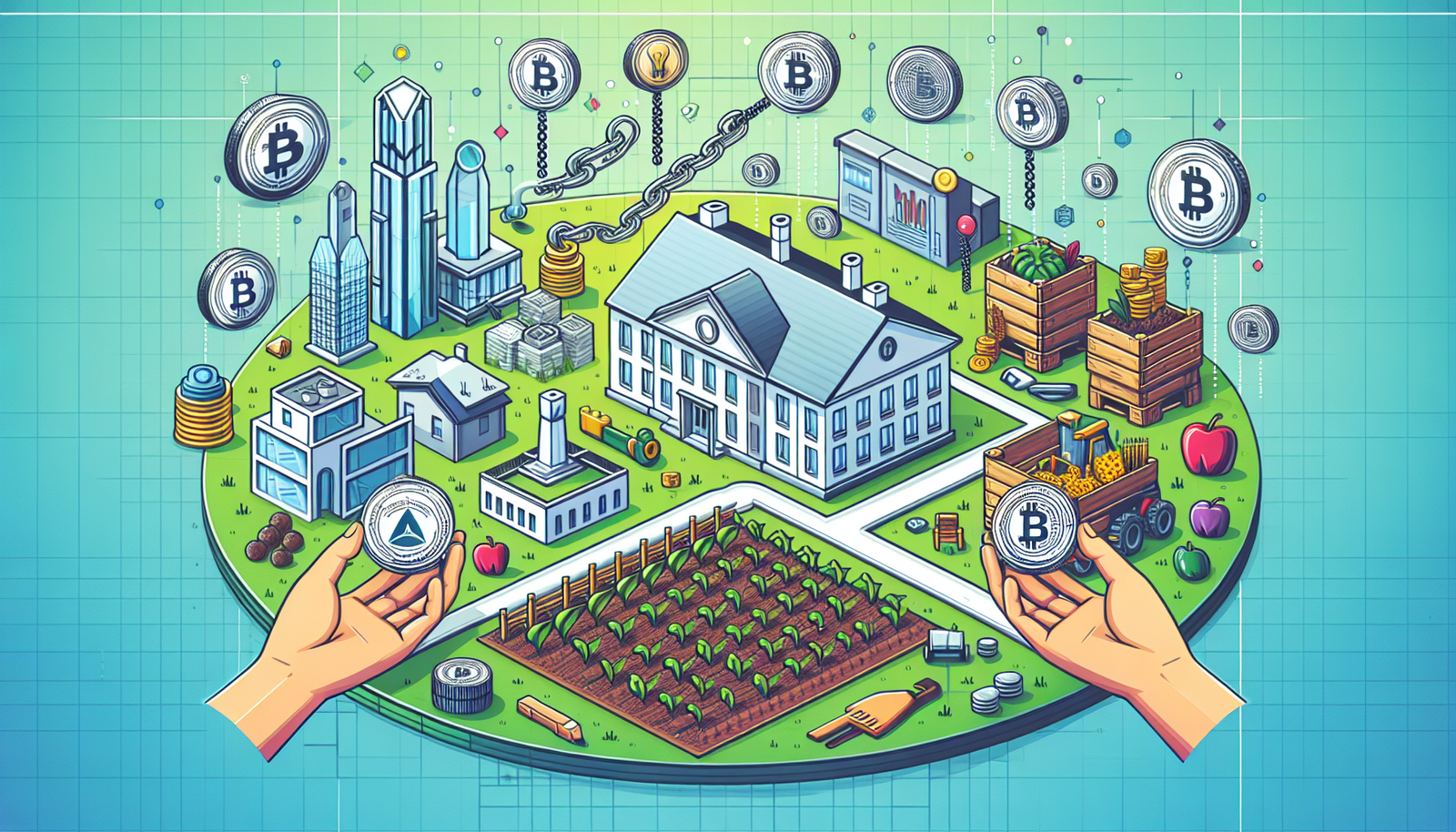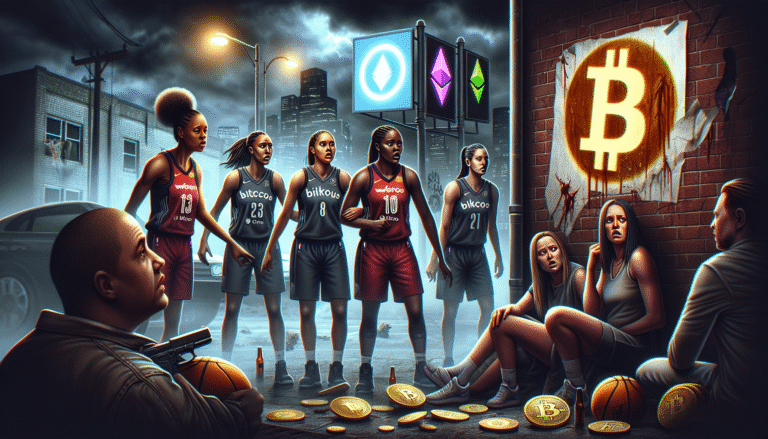RWA Tokenization Revolutionizes Real Estate, LEGO, and Agriculture Sectors
In recent years, the concept of Real-World Asset (RWA) tokenization has gained traction in various sectors, showcasing a potential to transform traditional industries. This innovative approach, which incorporates blockchain technology, is not just a passing trend but a powerful tool that can redefine how we view ownership, investment, and functionality across real estate, LEGO, and agriculture markets. It’s an exciting time, and the implications are immense for businesses and consumers alike.
The Rise of RWA Tokenization
As technology advances, the way we handle assets is evolving. RWA tokenization brings real-world assets onto the blockchain, allowing for enhanced liquidity, fractional ownership, and unprecedented access to investment opportunities. Essentially, it offers a way to represent ownership of physical assets in a digital format. At its core, this process breaks down barriers to entry, opening up asset ownership to a broader audience. The implications are profound, especially for traditionally illiquid markets.
- Liquidity: Tokenization provides improved liquidity by enabling assets to be traded on secondary markets easily.
- Accessibility: It invites investors of all capital sizes to participate, democratizing investment opportunities.
- Transparency: Utilizing blockchain ensures an immutable record of transactions and ownerships enhanced by smart contracts.
This influx of technology is being manifested in numerous sectors. Let’s explore how RWA tokenization is revolutionizing real estate, LEGO collectibles, and agriculture.
Real Estate: A Game Changer
The real estate industry is often seen as a bastion of solid investment, yet many struggle to break into the market due to high capital requirements. Here, RWA tokenization is making a significant impact. Properties can now be segmented into tokens, allowing individuals to invest in real estate with minimal capital.
Consider the following advantages of tokenization in real estate:
- Fractional Ownership: Investors can acquire fractions of properties rather than needing the capital to purchase an entire asset, enabling diversification of portfolios.
- Global Marketplace: Tokenization allows for global access to investments. A person in New York can invest in a property in Berlin without ever needing to travel.
- Smart Contracts: Transactions are automated and secure through smart contracts, reducing costs and ensuring trust between parties.
Moreover, companies in this space are emerging rapidly. Platforms like Neyrotex.com are harnessing the power of blockchain to provide users with unprecedented real estate investment opportunities.
LEGO: Tokens for Play or Profit?
Believe it or not, tokenization is also having an impact on the world of LEGO. While these colorful bricks are primarily associated with childhood creativity and play, they have also emerged as investments. Collecting rare sets can yield significant returns. Tokenization allows enthusiasts and investors to own portions of high-value LEGO sets securely.
Here’s how it unfolds:
- Ownership Representation: By tokenizing LEGO sets, individuals can buy shares in what is traditionally a cumbersome and bulky asset.
- Market Access: Investors who may not want to handle physical collectibles can invest in tokens representing these assets.
- Verified Appreciation: The rarity and historical significance of certain LEGO sets can be officially verified and recorded on the blockchain, assuring collectors of the asset’s value.
Companies are stepping in to create marketplaces for these tokens, bridging the gap between hobbyists and investors while expanding opportunities for growth. As the LEGO market continues to evolve, tokenization presents a unique way for fans to enjoy their passion while potentially reaping financial benefits.
Agriculture: Cultivating Investments
Lastly, the agricultural sector is tapping into RWA tokenization as it strives to modernize and meet the demands of a growing population. From farms to agricultural products, tokenization can facilitate investment in crops, land, equipment, and more.
The advantages here are also multifaceted:
- Increased Investment: Tokenization allows farmers to attract investment for specific projects and crops, raising necessary funds without relinquishing complete ownership.
- Supply Chain Transparency: Blockchain technology can improve transparency in the agricultural supply chain, from farmers to consumers.
- Sustainability Incentives: Tokenization can be linked to sustainability efforts, whereby investments in eco-friendly practices can be rewarded through token distribution.
Several startups and platforms are already embracing these concepts. They’re creating a new wave of opportunities for investors and farmers alike, effectively blending technology with traditional practices to yield mutual benefits in both growth and sustainability.
Challenges and Considerations
Despite the allure of RWA tokenization, there are hurdles to overcome. Regulatory considerations loiter at the forefront of this new movement, as lawmakers grapple with how these digital representations of ownership fit into existing legal frameworks. Moreover, concerns regarding security, fraud, and the technological divide can pose challenges to widespread adoption.
- Regulatory Uncertainty: The legal landscape surrounding digital assets is still forming, leading to potential investment risks.
- Security Risks: As with any digital solution, concerns around hacking and fraudulent transactions persist.
- Technology Gap: Not everyone is tech-savvy; thus, educational resources are crucial in bridging understanding among potential investors.
However, it’s essential to recognize that these challenges pave the way for growth. As technology advances and regulatory bodies adapt, more opportunities will arise, making tokenized assets not just a novelty but a sustainable solution benefiting many.
The Future of RWA Tokenization
Looking ahead, the future of RWA tokenization presents an exciting landscape filled with potential. As industries embrace this novel approach, we will likely witness a shift in how assets are perceived and managed. Cost efficiency, accessibility, and transparency might lead to more democratized investment scenarios, particularly in industries once dominated by a select few.
For investors, the strategy of integrating RWA tokenization into their portfolio could open doors previously thought closed. Consider the versatility across sectors—real estate, LEGO, and agriculture all have unique aspects yet share common ground in the ability to facilitate investment and ownership via digital means.
Thus, for those who dare to embrace it, the world of tokenization stands poised to upend traditional investment paradigms and provide a wealth of opportunities. Stay informed, engage with the technology, and explore platforms like Neyrotex.com to see firsthand how these innovations unfold.
Wrapping It Up
RWA tokenization is not merely a buzzword; it’s an evolving reality, enriching industries and investing experiences. From real estate to LEGO and agriculture, it’s shaping the market landscape and democratizing asset ownership. While challenges may loom, the potential for growth, transparency, and accessibility remains potent. As we explore these sectors, the future of assets has never looked brighter.
So, stay curious, keep learning, and who knows—your next investment could be a tokenized asset that shapes the way you view ownership forever.
For additional insights and ongoing discussions about the future of tokenization, make sure to visit Neyrotex.com regularly!




